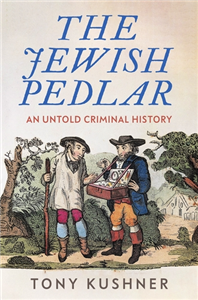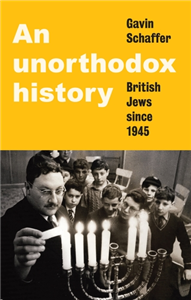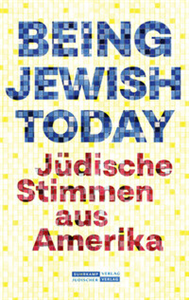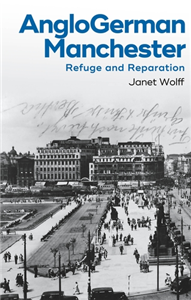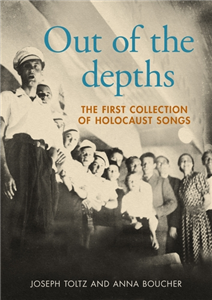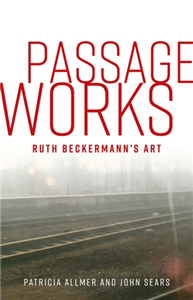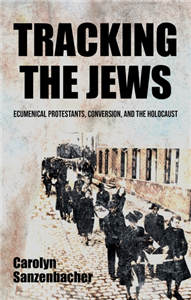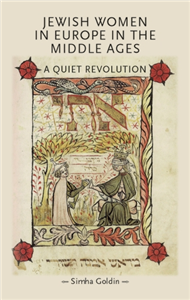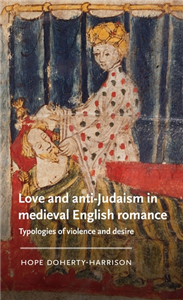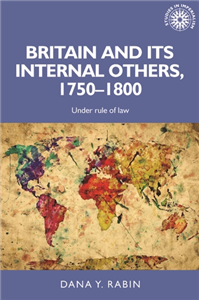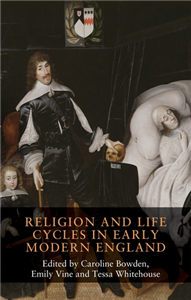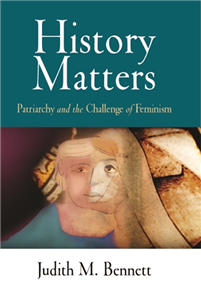Your Search Results
-
A Walk through History
A Walk Through History is a Russian publishing house specializing in children’s nonfiction. Since 2011 it has created and designed about 50 titles on various periods of history and other subjects such as mathematics, sport, plants and animals.
View Rights Portal
-
Promoted ContentHumanities & Social SciencesMay 2025
The Jewish pedlar
An untold criminal history
by Tony Kushner
An imaginative investigation into a historical crime that sheds new light on Jewish history. In 1734 a pedlar turned smuggler named Jacob Harris slit the throats of three people in a pub in Sussex. This triple-murder, for which he was hanged and gibbeted, remains the most violent crime ever committed by a British Jew. Yet today it is all but forgotten. In The Jewish pedlar, Tony Kushner goes in search of the enigmatic Harris. Digging into a remarkable range of sources, from law records and newspaper reports to ballads and folktales, he follows the traces of Harris's legend across three hundred years of British history. In doing so, he reconstructs the world of Jewish pedlars and criminals across many continents. The lives these figures eked out at the margins of society paint a picture of persistent antisemitism - but also of remarkable integration. Intellectually bold and deeply humane, The Jewish pedlar takes a new, grassroots approach to the history of Jews in the modern world, shedding light on everyday lives from the Enlightenment to the Holocaust and beyond.
-
Promoted ContentHumanities & Social SciencesFebruary 2025
An unorthodox history
British Jews since 1945
by Gavin Schaffer
A bold, new history of British Jewish life since the Second World War. Historian Gavin Schaffer wrestles Jewish history away from the question of what others have thought about Jews, focusing instead on the experiences of Jewish people themselves. Exploring the complexities of inclusion and exclusion, he shines a light on groups that have been marginalised within Jewish history and culture, such as queer Jews, Jews married to non-Jews, Israel-critical Jews and even Messianic Jews, while offering a fresh look at Jewish activism, Jewish religiosity and Zionism. Weaving these stories together, Schaffer argues that there are good reasons to consider Jewish Britons as a unitary whole, even as debates rage about who is entitled to call themselves a Jew. Challenging the idea that British Jewish life is in terminal decline. An unorthodox history demonstrates that Jewish Britain is thriving and that Jewishness is deeply embedded in the country's history and culture.
-
 Trusted Partner
March 2025
Trusted Partner
March 2025Leó Szilárd
The man behind the bomb
by Arne Molfenter
Leó Szilárd is a brilliant physicist - although he originally began his studies in Berlin without even being enrolled. On long walks home from university, he discusses scientific issues of all kinds with his professor and neighbour Albert Einstein. Szilárd, who is of Jewish descent, flees to London in 1933. His goal is to prevent the Germans from being the first to have nuclear weapons. With Albert Einstein and other scientists, he puts himself at the service of the American government to advance the development of an atomic bomb for defence purposes. When he realises that the Manhattan Project is not about defence, but about an attack on Japan, he is horrified. Author and journalist Arne Molfenter traces the life of this brilliant man whose invention was used completely against his intentions. It is an exciting book about a scientist whose research influenced the course of history.
-
 Trusted Partner
December 2023
Trusted Partner
December 2023Hatred of Jews
A never-ending story?
by Sebastian Voigt
— An overall presentation of the history of anti-Semitism based on the latest research — A necessary book that helps to recognise (and combat) anti-Jewish attitudes and patterns of behaviour even in the present day The Hamas attack on Israel is further aggravating the situation in the Middle East, and will continue to intensify anti-Semitism. And this plague, combined with Israel’s denied right to exist; the attacks in Brussels and Paris; the aggressive violence against everything Jewish in the Islamic world – is as dangerous as ever. Hatred of the Jews is old, vast and strong. The anamnesis began 2500 years ago in the Middle Ages, and came to head in the 18th and 19th centuries. It culminated ideologically in the Wannsee Conference, and became murderous in Auschwitz. Historian Sebastian Voigt provides a dense history of the hatred of the Jews – and combines it with a passionate call for courageous resistance.
-
 Trusted Partner
April 2026
Trusted Partner
April 2026Being Jewish Today
Jüdische Stimmen aus Amerika
by Amir Eshel, Thomas Sparr, Ursula Kömen
Der 7. Oktober, der Terror der Hamas und der nachfolgende Krieg in Gaza, die weltweiten Proteste dagegen stellen Jüdinnen und Juden in aller Welt vor neue entscheidende Fragen: nach Zugehörigkeit, Entfremdung von Israel oder Loyalität zum jüdischen Staat, nach Repräsentation. Die jüdische Welt ist in Aufruhr und Unruhe. Antisemitische Anfeindungen haben weltweit, besonders in Deutschland massiv zugenommen. Gleichzeitig sind viele liberale, säkulare oder progressive Jüdinnen und Juden uneins mit der Politik der derzeitigen israelischen Regierung, geraten in Erklärungsnot oder einen Zwang, sich anderen erklären zu müssen. Ein Spannungsfeld ist entstanden, das nicht nur politisch, sondern existentiell ist. Wie lassen sich Solidarität und Kritik zusammendenken? Wie sieht ein jüdisches Selbstverständnis aus, das Raum für Vielstimmigkeit und Widerspruch bietet? Bedeutet jüdisch zu sein auch israelisch zu sein? Inwieweit verändert der 7. Oktober jüdisches Gemeindeleben, die Gedankenwelt und jüdische Publizistik? Wie steht es um das jüdische Gemeindeleben in den USA?In den USA wird eine intensive Diskussion über all das geführt, mit der dieser Band vertraut machen möchte: Peter Beinart ist darin mit seinem Beitrag Being Jewish after the Destruction of Gaza vertreten, die Gegenstimme von Elliot Crosgrove mit In such a time as this. On being Jewish Today sowie Susannah Heschel, Sarah Hammerschlag, Emily Levine, Shaul Magid und David N. Myers.
-
 Trusted Partner
Humanities & Social SciencesJanuary 2013
Trusted Partner
Humanities & Social SciencesJanuary 2013The Jews in western Europe, 1400–1600
by John Edwards
As European politics, society, economy and religion underwent epoch-making changes between 1400 and 1600, the treatment of Europe's Jews by the non-Jewish majority was, then as in later periods, a symptom of social problems and tensions in the Continent as a whole. Through a broad-ranging collection of documents, John Edwards sets out to present a vivid picture of the Jewish presence in European life during this vital and turbulent period. Subjects covered include the Jews' own economic presence and culture, social relations between Jews and Christians, the policies and actions of Christian authorities in Church and State. He also draws upon original source material to convey ordinary people's prejudices about Jews, including myths about Jewish 'devilishness', money-grabbing, and 'ritual murder' of Christian children. Full introductory and explanatory material makes accessible the historical context of the subject and highlights the insights offered by the documents as well as the pitfalls to be avoided in this area of historical enquiry. This volume aims to provide a coherent working collection of texts for lecturers, teachers and students who wish to understand the experience of Jewish Europeans in this period.
-
 Trusted Partner
Humanities & Social SciencesMay 2026
Trusted Partner
Humanities & Social SciencesMay 2026AngloGerman Manchester
Refuge and Reparation
by Janet Wolff
The essays in this book discuss the lives of Germans living in Manchester, from the mid-nineteenth century to the present, combining historical study with personal and autobiographical material. Chapters are devoted to Frederick Engels, Fanny Lewald, Rabbi Felix Carlebach and W. G. Sebald, with additional discussion of Elizabeth Gaskell and the Manchester writer Geraldine Jewsbury. One chapter focuses on Jewish refugees from Nazism who set up new industries in Manchester, including the author's father. The final chapter takes up the theme of reparation, which runs through the book, relating the work of non-Jewish Germans engaged in the project of 'making amends' in their own country for the crimes of an earlier generation.
-
 Trusted Partner
Humanities & Social SciencesJanuary 2025
Trusted Partner
Humanities & Social SciencesJanuary 2025Out of the depths
The first collection of Holocaust songs
by Joseph Toltz, Anna Boucher
Available for the first time in English translation, this collection of songs is a powerful memorial to the victims of the Holocaust. In June 1945, before the full devastation of the Holocaust had emerged, a team of researchers embarked on a remarkable project. While documenting the experiences of Jewish refugees, they began to collect songs composed and sung in the Nazi camps and ghettos. The resulting book, Mima'amakim (Out of the depths), was published in a short run of 500 copies. Today, only a handful survive. Out of the depths: The first collection of Holocaust songs presents the contents of this extraordinary document for a new generation of readers. Based on a copy of Mima'amakim discovered in 2013, it contains not only the songs' melodies and lyrics, the latter in a new translation by Joseph Toltz, but also short biographies of the composers, drawn from painstaking original research. Introductory essays provide historical and musicological background, deepening our knowledge of this terrible event and the creative means by which the Jewish people responded to and endured it. Described by the original editor, Yehuda Eismann, as a 'memorial stone for Polish Jewry', the songbook is a timeless document of a people's despair, hope and strength.
-
 Trusted Partner
The ArtsFebruary 2025
Trusted Partner
The ArtsFebruary 2025Passage works
Ruth Beckermann’s art
by Patricia Allmer, John Sears
Passage Works is the first book-length English language critical analysis of the transdisciplinary work of the Austrian film-maker, writer, and artist Ruth Beckermann (b. 1952, Vienna). Beckermann's works interrogate identity and geography as formations of the intersections between the past and the contemporary. Taking as her central topics Austria and its history and politics, her own identity as a Jewish woman, and the contemporary global geopolitics of migration and displacement, Beckermann develops wider meditations in film, art, and writing on the persistence of European memory, and the meanings of Europe itself; on borders, migrations, and identities; on memories, traumas, and traditions; on the image as marker of presence and absence, repository of the traces of historical violence; and on the passage as metaphor for a range of physical, psychological, and ideological movements defining the complexities of contemporary cosmopolitan identities.
-
 Trusted Partner
Humanities & Social SciencesApril 2024
Trusted Partner
Humanities & Social SciencesApril 2024Tracking the Jews
Ecumenical Protestants, conversion, and the Holocaust
by Carolyn Sanzenbacher
This book sheds light on an unprecedented Protestant conversion initiative for the global evangelisation of Jews. Founded in 1929, the International Committee on the Christian Approach to the Jews (ICCAJ) aimed to bring Jewish people to their 'spiritual destiny', a task it saw as both benevolent and essential for a harmonious society. By the time of Hitler's rise to power it was active in thirty-two countries, educating Protestant churches on the right Christian attitude towards Jews and antisemitism. Reconstructing the activities of the ICCAJ in the years before, during and immediately after the Holocaust, Tracking the Jews reveals how ideas disseminated through the organisation's discourse - 'Jewish problem', 'Jewish influence', 'Judaising threat', 'eternal Jew' - were used to rationalise, justify, explain or advance a number of deeply troubling policies. They were, for vastly different reasons, consciously used elements of argumentation in both Protestant conversionary discourse and Nazi antisemitic ideology.
-
 Trusted Partner
Trusted Partner
-
 Trusted Partner
Medieval historyNovember 2011
Trusted Partner
Medieval historyNovember 2011Jewish Women in Europe in the Middle Ages
A quiet revolution
by Simha Goldin
Goldin's study explores the relationships between men and women within Jewish society living in Germany, northern France and England among the Christian population over a period of some 350 years. Looking at original Hebrew sources to conduct a social analysis, he takes us from the middle of the tenth century until the middle of the second half of the fourteenth century, when the Christian population had expelled the Jews from almost all of the places they were living. Particularly fascinating are the attitudes towards women, as well as their changes in social status. By examining the factors involved in these issues, including views of the leadership, economic influences, internal power politics and gender struggles, Goldin's book provides a greater understanding of the functioning of these communities. This volume will be of great interest to historians of medieval Europe, gender and religion.
-
 Trusted Partner
Literature & Literary StudiesSeptember 2025
Trusted Partner
Literature & Literary StudiesSeptember 2025Love and anti-Judaism in medieval English romance
Typologies of violence and desire
by Hope Doherty-Harrison
Love and anti-Judaism is a new examination of medieval romance for the questions it poses of the most significant events in Christian history. Providing new readings of Sir Gawain and the Green Knight, Sir Orfeo, Sir Gowther and Sir Amadace, the book argues that romance explores depictions of love-and the sacrifices it may necessitate-in the Hebrew Bible, especially where they do not easily fit into interpretations asserting that this history must prefigure Christ and the crucifixion. An examination of anti-Judaism as a discourse of violence and desire that could be turned inwardly to expose the irresolution in Christianity, this book will provoke new investigations into the religious crises of medieval romance.
-
 Trusted Partner
Humanities & Social SciencesFebruary 2023
Trusted Partner
Humanities & Social SciencesFebruary 2023No masters but God
Portraits of anarcho-Judaism
by Hayyim Rothman
The forgotten legacy of religious Jewish anarchism, and the adventures and ideas of its key figures, finally comes to light in this book. Set in the decades surrounding both world wars, No masters but God identifies a loosely connected group of rabbis and traditionalist thinkers who explicitly appealed to anarchist ideas in articulating the meaning of the Torah, traditional practice, Jewish life and the mission of modern Jewry. Full of archival discoveries and first translations from Yiddish and Hebrew, it explores anarcho-Judaism in its variety through the works of Yaakov Meir Zalkind, Yitshak Nahman Steinberg, Yehudah Leyb Don-Yahiya, Avraham Yehudah Heyn, Natan Hofshi, Shmuel Alexandrov, Yehudah Ashlag and Aaron Shmuel Tamaret. With this ground-breaking account, Hayyim Rothman traces a complicated story about the modern entanglement of religion and anarchism, pacifism and Zionism, prophetic anti-authoritarianism and mystical antinomianism.
-
 Trusted Partner
October 2020
Trusted Partner
October 2020Stop the Hatred!
A Pamphlet Against Antisemitism
by Sigmund Gottlieb
The increasing hostility that Jews experience can no longer be explained away with fine rhetoric. Antisemitism is taking hold in a menacing way at the heart of society. Sigmund Gottlieb addresses his wake-up call to the population at large: stand up – not only against right-wing extremist violence and radical Islamism, but also against hatred in the social media, against unfair criticism of the state of Israel, against anti-Jewish abusive language in the school playground, against trivializing reports in the media and day-to-day indifference. The resurgent talk of ‘packed suitcases’ in Jewish communities is a moral indictment. And it is intolerable.
-
 Trusted Partner
Humanities & Social SciencesAugust 2022
Trusted Partner
Humanities & Social SciencesAugust 2022Britain and its internal others, 1750–1800
Under rule of law
by Dana Rabin
The rule of law, an ideology of equality and universality that justified Britain's eighteenth-century imperial claims, was the product not of abstract principles but imperial contact. As the Empire expanded, encompassing greater religious, ethnic and racial diversity, the law paradoxically contained and maintained these very differences. This book revisits six notorious incidents that occasioned vigorous debate in London's courtrooms, streets and presses: the Jewish Naturalization Act and the Elizabeth Canning case (1753-54); the Somerset Case (1771-72); the Gordon Riots (1780); the mutinies of 1797; and Union with Ireland (1800). Each of these cases adjudicated the presence of outsiders in London - from Jews and Gypsies to Africans and Catholics. The demands of these internal others to equality before the law drew them into the legal system, challenging longstanding notions of English identity and exposing contradictions in the rule of law.
-
 Trusted Partner
2020
Trusted Partner
2020History of the German Language
A textbook for German studies; Part 1: Introduction, prehistory and history; Part 2: Old High German, Middle High German and Early New High German
by Wilhelm Schmidt, Edited by Dr. Elisabeth Berner and Prof. Dr. Dr. h.c. Dr. h.c. Norbert Richard Wolf
The 12th revised and updated version of the History of the German language – long regarded as an indispensable standard work for German Studies, has just been published. From now on, this comprehensive textbook on the history of the language is divided into two volumes. In addition to introducing questions about historical linguistics, the first volume provides a detailed account of the prehistory and history of German right up to the present day. Based on extensive source analyses, the focus is on aspects of culture and social history; only the chapters on the Indo-Germanic and Germanic language include key information about structural history. The second part contains concise, but readily understandable accounts of Old, Middle and Early New High German in terms of phonology, graphemics, morphology and syntax. Not only are synchronous descriptions given of the particular language period, but also the development of German language construction at all structural levels is explained. The association of grammatical synchrony and structural diachrony is a particular characteristic of this second part of Schmidt’s work on the history of language.
-
 Trusted Partner
Humanities & Social SciencesOctober 2021
Trusted Partner
Humanities & Social SciencesOctober 2021Religion and life cycles in early modern England
by Caroline Bowden, Emily Vine, Tessa Whitehouse
Religion and life cycles in early modern England assembles scholars working in the fields of history, English literature and art history to further our understanding of the intersection between religion and the life course in the period c. 1550-1800. Featuring chapters on Catholic, Protestant and Jewish communities, it encourages cross-confessional comparison between life stages and rites of passage that were of religious significance to all faiths in early modern England. The book considers biological processes such as birth and death, aspects of the social life cycle including schooling, coming of age and marriage and understandings of religious transition points such as spiritual awakenings and conversion. Through this inclusive and interdisciplinary approach, it seeks to show that the life cycle was not something fixed or predetermined and that early modern individuals experienced multiple, overlapping life cycles.
-
 Trusted Partner
Humanities & Social SciencesAugust 2006
Trusted Partner
Humanities & Social SciencesAugust 2006History matters
Patriarchy and the challenge of Feminism
by Judith Bennett
Written for everyone interested in women's and gender history, History matters reaffirms the importance to feminist theory and activism of long-term historical perspectives. Judith M. Bennett takes as her central problem the growing chasm between feminism and history which, although closely allied in the 1970s, have now moved away from one another. Seeking to narrow this gap, Bennett proposes that feminist historians turn their attention to the intellectual challenges posed by the persistence of patriarchy. She posits a 'patriarchal equilibrium' whereby, despite many changes in women's experiences over past centuries, women's status vis-à-vis men has remained remarkably unchanged. Bennett argues that the theoretical challenge posed by this 'patriarchal equilibrium' will be best met by long-term historical perspectives that reach back well before the modern era. A new manifesto, History matters engages forthrightly with the challenges faced by feminist historians today. It argues for the radical potential of a history that is focused on feminist issues, aware of the distant past, attentive to continuities over time, and alert to the workings of patriarchal power. ;
-
 Trusted Partner
Trusted Partner




